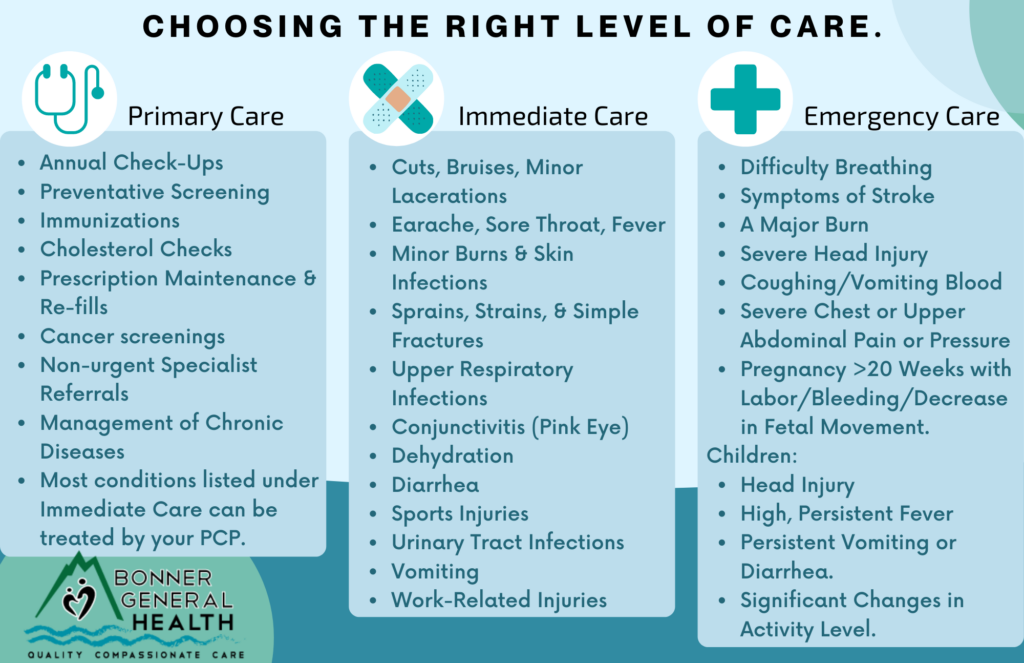Taking the stress out of where to go when you need medical attention.
By Kristin Carlson, Marketing Specialist, Bonner General Health
This topic is not new; we like to cover it regularly because we want you to be prepared for the unexpected when it comes to your health. Knowing your healthcare options is essential in determining where you should go for care when you need it. How serious is my medical concern? How do I know what level of care I need? Is this an emergency? Answering any of these questions can create stress and confusion in a potentially severe health-related scenario.
You can do a few things to lessen the stress and be prepared when you or a loved one is ill or injured. 1) Establish a relationship with a Primary Care Provider.
2) Identify where the closest Immediate Care Clinic and Emergency department are located.
3) Understand your health insurance coverage or access it quickly and conveniently.
4) Know what level of care you need when you need it.
All non-emergent, preventative, or minor ailments can be addressed with your Primary Care Provider (PCP). A PCP typically manages your overall health and wellness. You go to this person when you are sick and to maintain your long-term health. Therefore, it is essential to establish yourself with a PCP before becoming ill or needing care. Even if you are in good health, having a go-to PCP will save you time and allow you to build a trusting relationship with a healthcare provider. In addition, when you are established with a PCP and emergency services are needed, you have a provider to follow up with regarding your care or recovery.
Suppose you experience an injury that may require more extensive care. You or a family member become ill after hours, or you cannot get into your PCP immediately. In that case, a visit to an Immediate Care Clinic may be appropriate. Immediate or Urgent Care Clinics can treat many ailments and typically have quick access to imaging, such as x-ray, when an injury is suspected. They usually have extended hours beyond traditional office hours and are open on the weekends.
An emergency is a serious, unexpected, and often dangerous situation requiring immediate action. Circumstances suitable for the Emergency Department include difficulty breathing, symptoms of a stroke, a severe head injury, pregnancy complications >20 weeks with contractions/labor with bleeding, or decreased fetal movement.
Children should be brought to the Emergency Department if they are experiencing high, persistent fever, persistent vomiting or diarrhea, or a head injury.
Whatever your injury or condition may be, a conveniently located resource is available to get you treated and back on your way. Being prepared for the unexpected is an excellent step towards taking ownership of your health.
If you are experiencing a life-threatening emergency, please call 9-1-1. Bonner General Health provides Emergency, Immediate, and Primary Care services conveniently located on our hospital campus in downtown Sandpoint. See the chart on the opposite page, “Choosing the Right Level of Care,” for additional information.
This article was written for publication in Sandpoint Living Local – March/April 2022 Edition.


